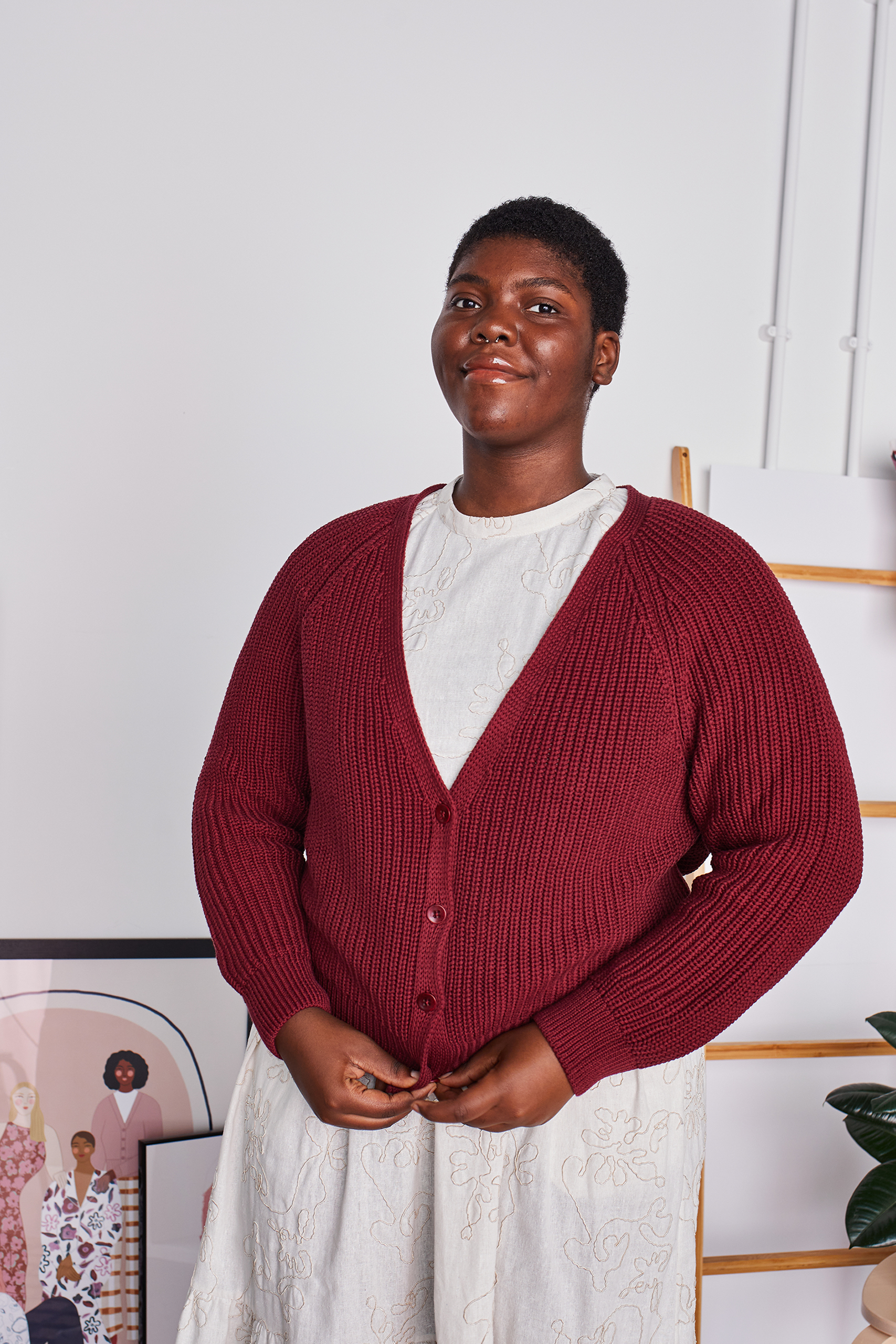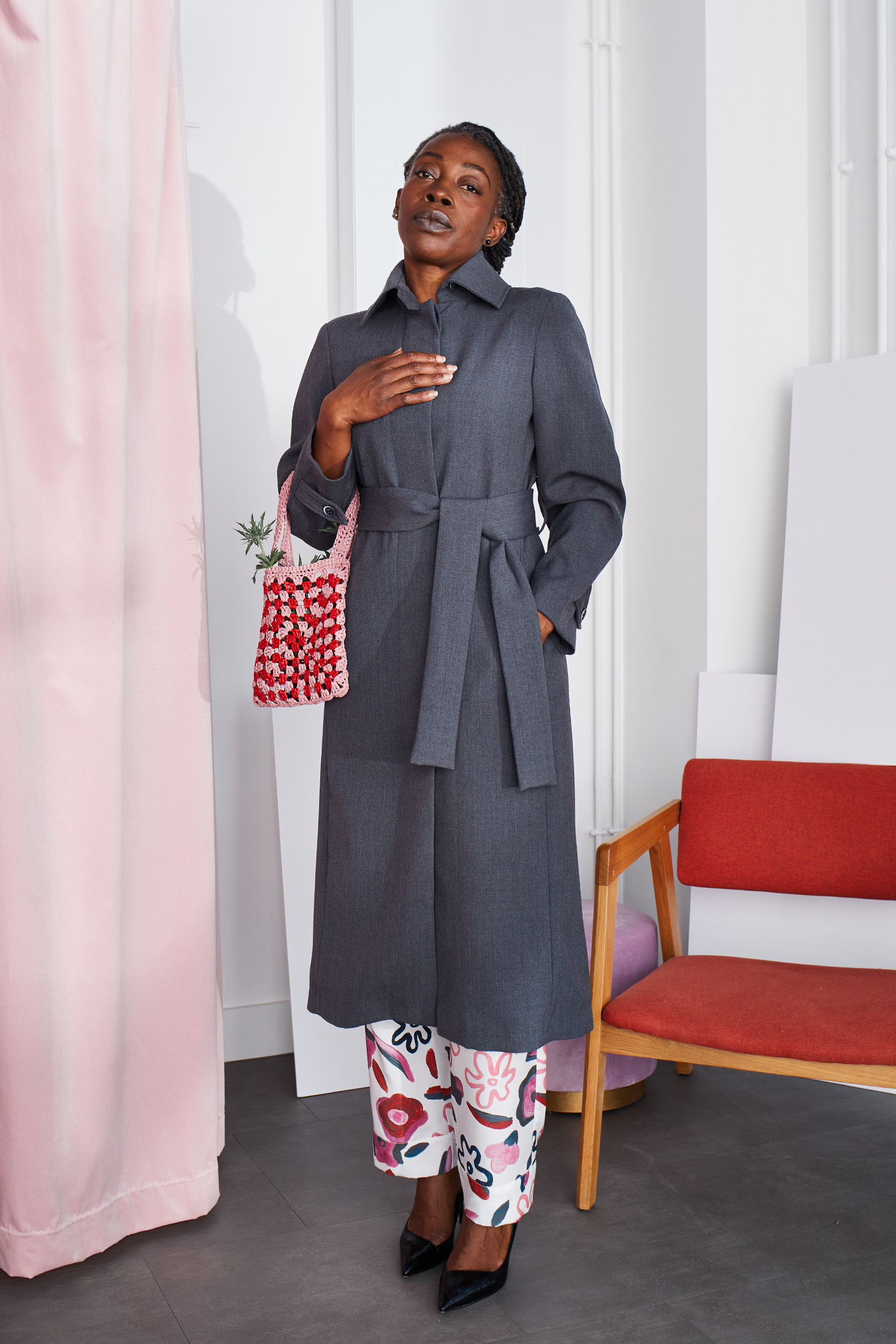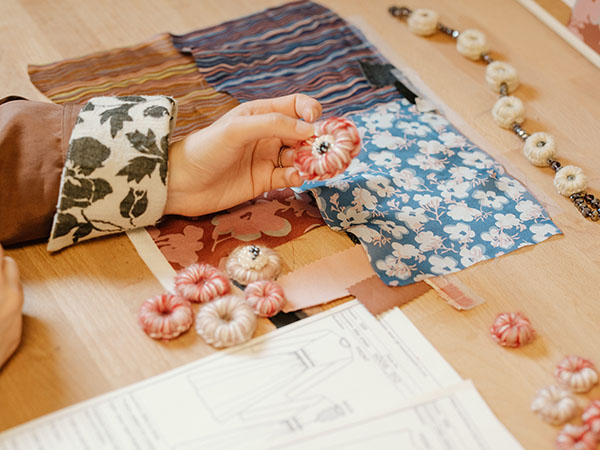When we hear that something was produced locally and on a small scale, we often want to know more: What actually is local and small scale production? Why does it matter? What are the advantages and disadvantages? How small is small scale production?
At SABINNA, we produce everything in Europe (Austria and Portugal) and in the UK. It’s incredibly important to us to make sure we know exactly where our garments are being manufactured as well as ensuring that the working conditions are ethical. We don’t believe in mass production or consumption but rather try to encourage our customers to shop more mindfully wherever possible. Our garments are designed to last and produced on a smaller scale which means we put a strong emphasis on not overproducing in order to avoid unnecessary waste. Local and small scale production is very important to us as it heavily aligns with some of our values as a sustainable fashion brand.
But what exactly is local production?
Local production focuses on producing everything within close proximity. Not only does it support local manufacturers and is better for the planet due to the distance being smaller (think about the carbon footprint of shipping), but it also allows for more flexibility for brands: shipping times are shorter, in some cases, bike couriers can even be used, custom and last minute orders are easier to manage and we can react to demand faster.
And what’s small scale production?
Small scale production describes a small production run – it can be anything between 5-500 garments. It’s the opposite of large-scale mass production. However, it’s important to mention that small scale can mean different things to different brands.
Another important thing to note is that local and small scale production does not automatically equal sustainability. Just because a brand focuses on a small scale and local production, that does not mean they’re paying their employees fair wages, ensuring safe working conditions or using ethical materials. Just like made in Europe or made in the UK doesn’t indicate ethical working conditions and fair wages.
So why do small scale and local production matter and what are some of the advantages and disadvantages?
First and foremost, it matters because it supports the local economy and allows better control over the product. Due to the fact that there’s a lower minimum order quantity, most brands are more likely to produce garments more mindfully and be more aware of how much they produce to avoid overproduction. Some other advantages are better control over the product, less risk, flexibility with customer demand and a direct relationship with the manufacturer.
Of course, as with everything, there are also disadvantages; the main one being a higher production cost per item.
The higher the minimum order quantity, the cheaper a product will get. Therefore with small scale production, items will automatically cost more. It can also be more difficult to find skilled workers depending on the area as well as a decline of local manufacturing in certain places. In some cases, it’s also more challenging to scale the business if you’re producing locally and small for a variety of reasons (sizes of factories, not enough resources/possibilities etc.).
Deciding whether or not to focus on local and small scale production is a personal and individual choice. There are a variety of factors at play such as budget, accessibility, availability etc. A lot of (particularly) sustainable brands choose it in the beginning when starting out because it helps them to be close to their product, flexible with customer demand and also gives them the opportunity to keep their spending budgets low and build a direct relationship between the manufacturer and brand which is crucial. On top of that, it helps minimise waste and contribute to the local economy. Needless to say, just because brands do not produce on a small scale or in their local area, that does not make them less sustainable.
If you want to find out more, make sure you listen to the second episode of our podcast ‘Consciousness Beyond The Product’ in order to really understand why brands choose to work with local manufacturers and how small scale production can help businesses maintain sustainability. Our founder Sabinna Rachimova spoke to three founders: Daniela Salazar, Sophie Slater from Birdsong and Genia Mineeva from Been.
You can listen to the full episode via Spotify or Apple Podcasts.
As well as find out more on our Instagram account @sabinna_com
Any questions? E-mail us at podcast@sabinna.com or send us a DM via Instagram.



